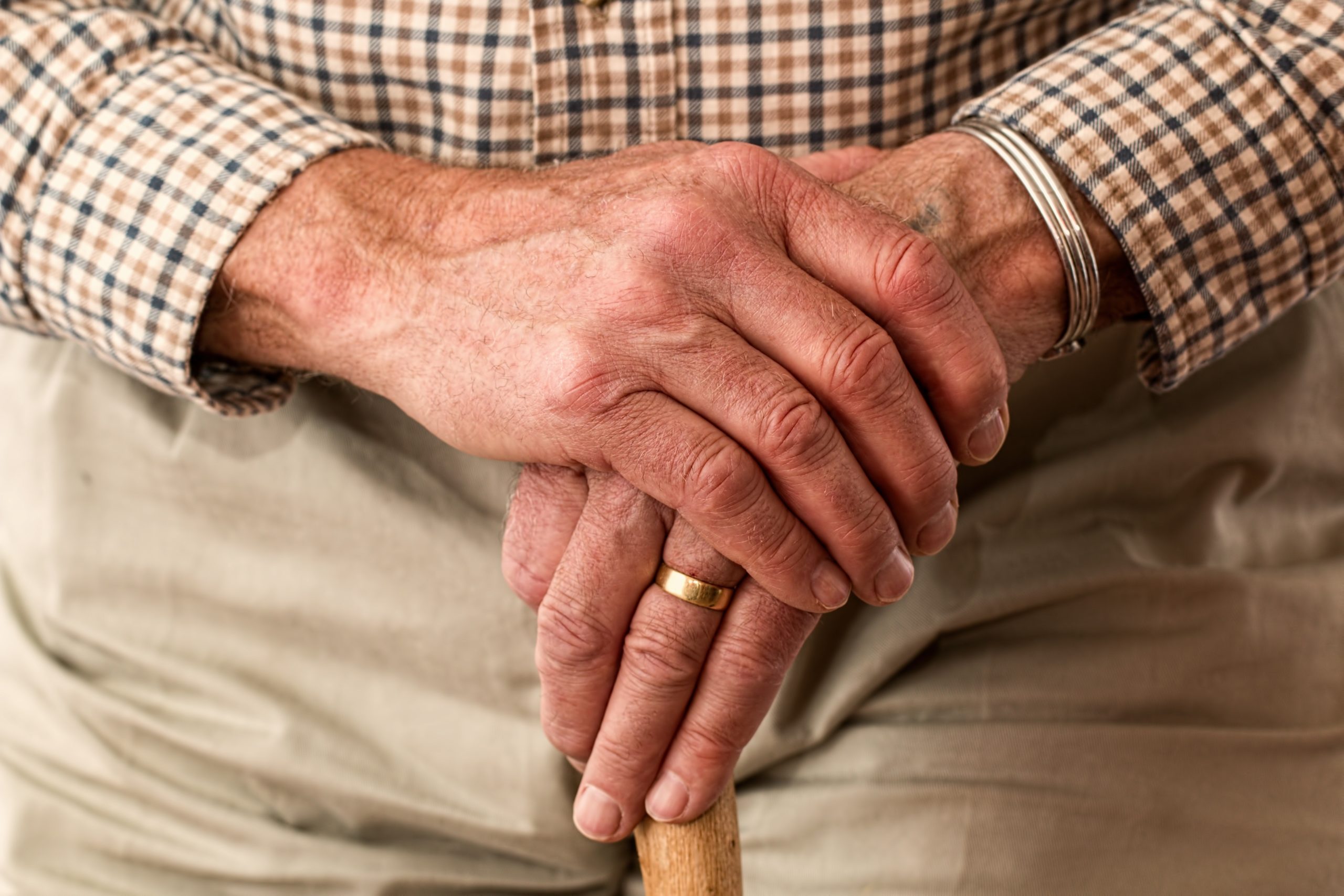As seniors grow older, chronic health problems may become inevitable. But for people with dementia, health problems can become even more difficult to deal with.
Getting a dementia diagnosis is stressful on its own, let alone being a co-occurring diagnosis for another physical health problem. With that said, there are things that can be done early on to help decrease the risk of health problems arising in the future.
Let’s talk about some tips and tricks for reducing common health problems after a dementia diagnosis.
Health Problems and Dementia
Avoiding physical health problems for people with dementia is extremely important for a number of reasons. However, the main reason is that it can become difficult for people with dementia to convey their pain and discomfort to those around them. This might mean that underlying conditions are never addressed.
Pain management specialists rely on patient self-reports to understand the severity and location of pain on the body, but alternative means need to be used to assess this in those with dementia. Without professional assistance to pinpoint painful health conditions, you may never even notice that your family member is struggling with a pain problem.
The only true way to manage this is to prevent health complications from occurring in the first place.
Here are some of the most common health problems that affect seniors, as well as some ways to combat them.
Arthritis
Arthritis is one of the most common types of disease in elderly adults, marked by pain and inflammation in the joints. There are many different types of arthritis, but the most common are:
- Osteoarthritis: When the cartilage that cushions the bones gradually deteriorates.
- Rheumatoid arthritis: When the immune system mistakenly attacks the body’s own tissue, resulting in joint pain.
- Psoriatic arthritis: A form of arthritis that affects people with psoriasis, characterized by red patches on the skin.
Arthritis can be painful, but manageable. For people with dementia, there are some things that can be done to reduce the pain and increase quality of life.
How To Combat
There are a number of over the counter anti-inflammatory topical creams that can be used to alleviate the feelings of pain and discomfort in inflamed areas. These can help bring immediate relief.
Additionally, stretching, exercising, and physical therapy can all be helpful natural remedies to bring relief to arthritic joints.
Before the condition worsens, you can combine diet and exercise to keep your weight stable and healthy. This may prevent the degeneration of cartilage that can lead to osteoarthritis. It’s important to go on walks outside or practice simple strength conditioning exercises with light weights.
Heart Disease
Heart disease is the leading cause of death in the United States, accounting for nearly 25% of all deaths. It’s a broad term that refers to a number of conditions, such as:
- Hypertension
- Arrhythmia
- Coronary Artery Disease (CAD)
- Congenital Heart Disease
Having heart disease can make it difficult to live independently and complete normal tasks. This, coupled with the cognitive impairment of dementia, can make it hard for seniors to live independently without the need for assistance.
How To Combat
Some of the best ways to prevent heart disease or even reverse the condition is a mix of diet and exercise. Exercises that get the heart pumping, such as walking, swimming, or dancing are good ways for your loved one to reduce their risk of heart disease.
As far as nutrition, composing a diet of heart-healthy foods is essential. This means loading up on fruits, vegetables, beans, and lean meats while avoiding foods that are high in cholesterol, like processed foods or red meats.
For people with dementia, it can be difficult to practice these healthy habits on their own. As a caregiver, it is important that you are preparing healthy meals and helping them stay active so that they can combat the risk of deadly health conditions from occurring.
Incontinence
Incontinence or other urinary tract problems are common for seniors, especially those with dementia. In fact, 40% of adults who live in a residential facility report problems with incontinence.
There are different types of incontinence, including:
- Stress incontinence: Pressure on the bladder
- Urge incontinence: Intense urges to urinate or the inability to control them.
- Mixed incontinence: a combination of stress and urge incontinence.
- Overflow incontinence: Failure to completely empty the bladder, causing dribbling.
Incontinence can be embarrassing for seniors and frustrating for caregivers. However, there are some ways to try to avoid it from occurring, even after a dementia diagnosis.
How To Combat
Incontinence can be caused by a number of things, so the underlying cause must first be identified. In some cases, incontinence is caused by excess anxiety or stress. In those cases, it is essential for your loved one to receive behavioral health treatment to manage the cause of their frequent urination.
Other therapies to help with incontinence include:
- Meditation
- Pelvic floor exercises
- Behavioral training
- Biofeedback
- Lifestyle changes
- Specialized equipment
- Environmental interventions
Broken Bones Caused By Falls
As you grow older, your bones can become weaker and more brittle. Combine that with a loss of dexterity and balance, it can make stumbles or falls more common and more dangerous.
95% of hip fractures are a result of falls, making them the leading cause of fatal injuries in older adults. While not every fall is sure to cause injury, preventing them occurring in the first place is the best way to make sure your loved one stays safe.
How To Combat
Fall prevention techniques are effective and important for reducing the frequency of falls in the home. One thing you can do is reduce the amount of hazards in the home. This means eliminating throw rugs, loose cords, or other obstacles that might cause your loved one to trip.
Additionally, exercise is important to help your family members build balance and stability. Even something as simple as going for a walk can strengthen muscles to improve physical fitness and stability. On top of that, having stronger muscles and bones can help reduce the risk of serious injury if a fall were to take place.
Dermatitis (Skin Irritation)
As you grow older, your skin becomes weaker and more prone to injury. Simple bumps might open the skin, leaving you more prone to infection. This risk is doubled considering that older skin does not heal as quickly as young skin.
This can lead to redness, irritation, discomfort, or lesions on the skin.
How To Combat
Managing your skin integrity as you age is important for reducing the risk of dermatitis or infection from injured skin.
Some ways you can help treat skin irritation in people with dementia includes:
- Reducing pressure on vulnerable skin
- Advanced dressings
- Making sure wounds are kept clean
- Over the counter lotions and creams
- Bioengineered tissue therapies
You can also help to keep your skin youthful and hydrated to prevent issues from occurring. Keeping your skin clean and moisturized are two of the most powerful tools for managing skin integrity.
Mental Health
Your mind is just as important as your physical health, and elderly individuals are just as susceptible to mental health problems as younger populations.
A dementia diagnosis can be stressful, often leading to anxiety or depression. This can stem from an inability to properly communicate, feeling a lack of purpose, or hopelessness about the future. It’s estimated that up to 40% of people with Alzheimer’s, a form of dementia, also suffer from depression.
How To Combat
The best way to treat depression in individuals with dementia is through a combination of medication and counseling. Geriatric psychiatry is a specialized area of psychiatry that focuses on the mental well-being of older adults.
Antidepressant medications such as SSRIs are proven effective at managing the symptoms of depression. On top of that, talk therapy and other psychological treatments can help alleviate the symptoms of mental health conditions that are causing your loved ones stress.
Also, stress can be a byproduct of physical ailments. This is why it is essential to incorporate holistic wellbeing into the treatment plan for every individual with dementia.
In Conclusion
Health conditions are an inevitable part of the aging process, but they can become stressful and more difficult to manage following a dementia diagnosis. However, from arthritis to mental health, there are ways that you can help your loved ones overcome anything.
But, you don’t need to do everything alone. Lightyear Health works to provide patients with comprehensive care to treat functional impairments, falls, incontinence, and more.
Click here to learn more about the ways that Lightyear Health can keep your loved ones as safe and happy as possible.
Sources:



